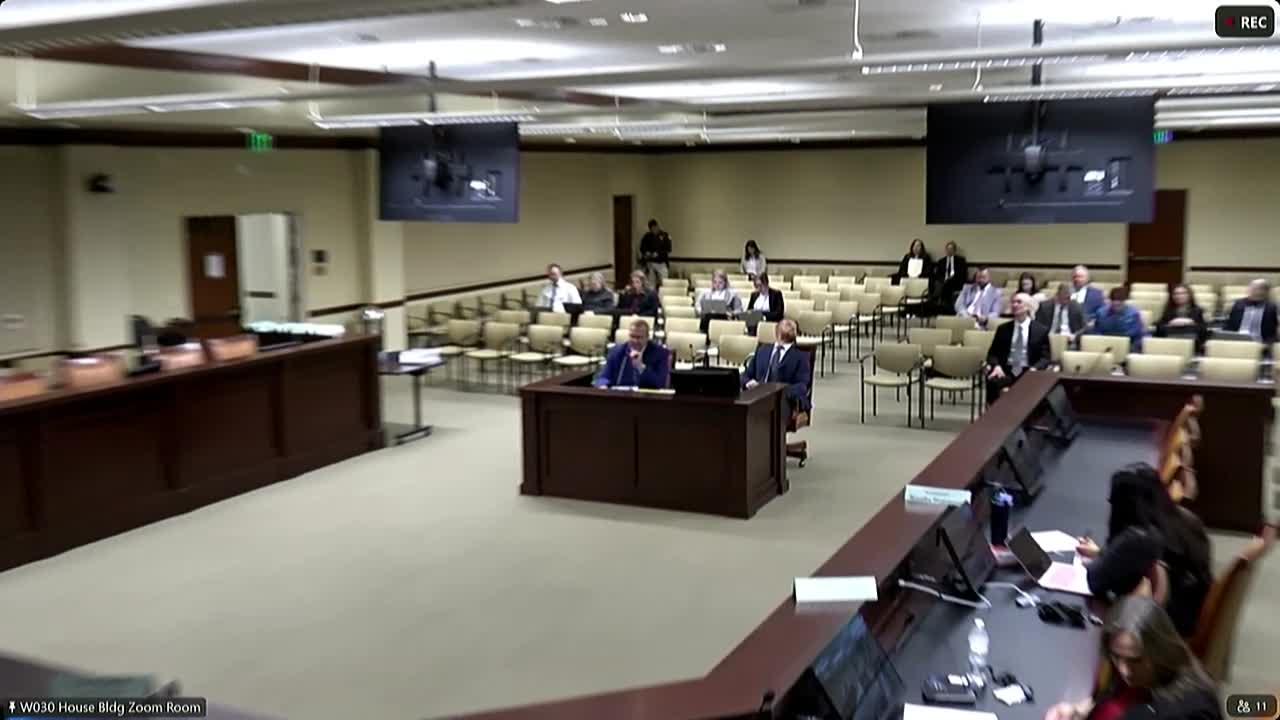Legislative auditors say Medicaid inspector general failed to provide adequate oversight
Get AI-powered insights, summaries, and transcripts
Subscribe
Summary
Legislative auditors told the General Government Appropriations Subcommittee that the Office of Inspector General (OIG) of Medicaid Services has not adequately fulfilled its statutory mandate to oversee Utah Medicaid.
Legislative auditors told the General Government Appropriations Subcommittee that the Office of Inspector General (OIG) of Medicaid Services has not adequately fulfilled its statutory mandate to oversee Utah Medicaid.
The Legislative Auditor General’s Office presented findings that the OIG’s audit coverage is narrow, its public reporting contains unexplained changes and errors, and management and governance weaknesses have limited the office’s effectiveness. Auditors recommended a menu of structural options — from creating an accountability board to separating the audit function or moving program-integrity work into another agency — and urged the Legislature to consider changes.
Auditors said the OIG was created following a 2011 Medicaid audit and began operating in 2012 with two primary functions: a performance/audit function and a program-integrity division that investigates fraud, waste and abuse. Jesse Martinson, audit manager with the Office of the Legislative Auditor General, said auditors reviewed OIG work since the last audit and concluded the office “has not adequately fulfilled its mandate to provide oversight of Medicaid.” Mathias Spoon, an audit supervisor, told the subcommittee that 80% of the OIG’s work since the prior review had focused on regulatory compliance and claims rather than broader Medicaid performance and outcomes.
Auditors identified several specific concerns: only one audit of accountable care organizations (ACOs) despite those organizations representing roughly $1.4 billion in state Medicaid deliveries; inconsistent or unreliable external reporting, including repeated identical measures across years, math errors and unexplained changes in reported numbers; variable returns on investment when comparing recovered dollars to the state’s investment in the office; and lengthy audit completion times (the office completed about 20 audits since 2018 with an average completion time auditors said was roughly 18 months).
“We cannot believe it is fully trustworthy,” Spoon said of the OIG’s public reporting. “There were math errors. There were changes in reported numbers without explanation. It was really cause for concern.” Martinson and Spoon said those issues, combined with weak governance, undercut the office’s accountability.
Interim Inspector General Neil Erickson, who said he had been in the OIG role about three weeks, told the committee the office did not disagree with many of the auditors’ recommendations and intends to work with the Legislative Auditor General’s Office to implement changes. Erickson said the OIG also views recipient protection and nonfinancial outcomes as part of its mission and described operational challenges during the COVID-19 public health emergency, including reassignment of nurse investigators and limits on facility access.
Committee members asked about next steps and whether the executive branch favors any of the auditors’ structural options. Auditors reported they had spoken with the Department of Health and Human Services (DHHS) and that DHHS leadership said it would be open to housing program-integrity work outside Medicaid while retaining independence; auditors maintained that the audit function should be located outside the OIG, such as with the State Auditor or Legislative Auditor General, if separation occurs. Representative Cutler asked whether the executive branch had a view; the auditors said DHHS was not opposed to housing program integrity there but that moving the audit function would require legislative action. Representative Keller asked which options would require statutory change; auditors confirmed moving audit or program-integrity functions would require an act of the Legislature.
The auditors provided a three-level menu of options: (1) leave the OIG intact but add formal accountability or governance (for example, an oversight board); (2) separate the audit function from the program-integrity function and house audits in an independent office (state auditor or legislative auditor); or (3) dissolve the OIG as currently constituted, reassign program-integrity functions (for example to DHHS) and locate audits in an independent office. Auditors also said they issued a response to perceived inaccuracies in the OIG’s written response to the audit.
The committee did not take formal action on the audit during the meeting. Staff and committee members discussed options for follow-up and requested additional information on timelines, staffing and the OIG’s plan for implementing the recommendations. Erickson said the OIG will work with committee and audit staff to address recommendations and to clarify operations and reporting moving forward.
The committee discussion established that the audit raised governance and transparency concerns and identified potential statutory changes for the 2026 session. Committee staff said they would incorporate the audit discussion into follow-up materials for future committee consideration.
